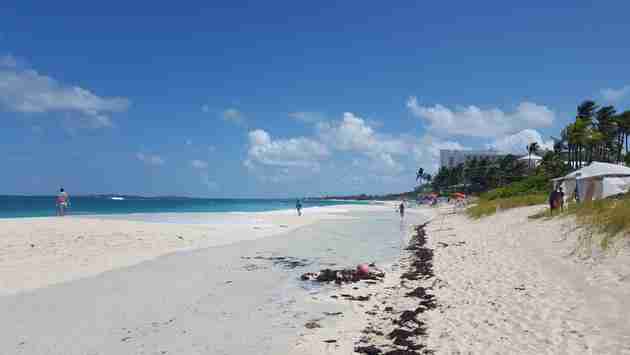Bahamas authorities will give “significant thought” to the feasibility of reopening Nassau’s tourist areas as planned on November 1, as the district remains subject to significant COVID-19 restrictions, said Dionisio D’Aguilar, the country’s tourism and aviation minister.

Under the country’s “vacation-in-place” model introduced earlier this month, a November 1 tourism restart would include the elimination of the territory’s mandatory 14-day visitor quarantine.
In a Bahamas Tribune interview published Monday, D'Aguilar said travelers will not want to visit the country while its beaches, the territory’s primary attraction, still remain closed to visitors and residents. “We cannot have an open tourism sector first and foremost if we don't have the beaches open,” D'Aguilar said.
He said the “competent authority,” described as Dr. Hubert Minnis, The Bahamas’ prime minister, will give “significant thought” to the decision to encourage visitors to return to Nassau on November 1, saying a testing regime must be in place and the destination must be “attractive to potential visitors.”
The country’s two largest resorts and largest employers, Atlantis Paradise Island and Baha Mar, are unlikely to reopen by November 1, although Atlantis officials appear to plan on a reopening before the end of 2020.
Nassau is located on New Providence island, which is subject to weekend lockdowns, early evening week-day curfews, beach closures and other COVID-19 restrictions. D'Aguilar said travelers “will not come to a jurisdiction where they are locked down.”
The Tribune reports the territory’s current protocols have not produced an “appreciable” reduction in the island’s daily COVID-19 infections. Local coronavirus spikes previously led Bahamas officials to close borders to visitors following earlier re-openings.
D'Aguilar added that the Ministry of Tourism will begin marketing the destination to U.S. travelers after the upcoming presidential election.
The Bahamas has also entered a partnership with the Living with COVID Coalition, a not-for-profit organization, to ensure the country can access three million COVID-19 rapid antigen tests.
“Having uninterrupted access to high-quality rapid antigen tests is a crucial component for us to begin reinvigorating our critically important tourism sector,” D'Aguilar said.
“The new testing protocols are designed so that we can responsibly enforce public health and safety measures,” he said, “while giving our visitors a better and more seamless vacation experience, ultimately allowing tourism-dependent professionals to get back to work.”
Leave a Comment